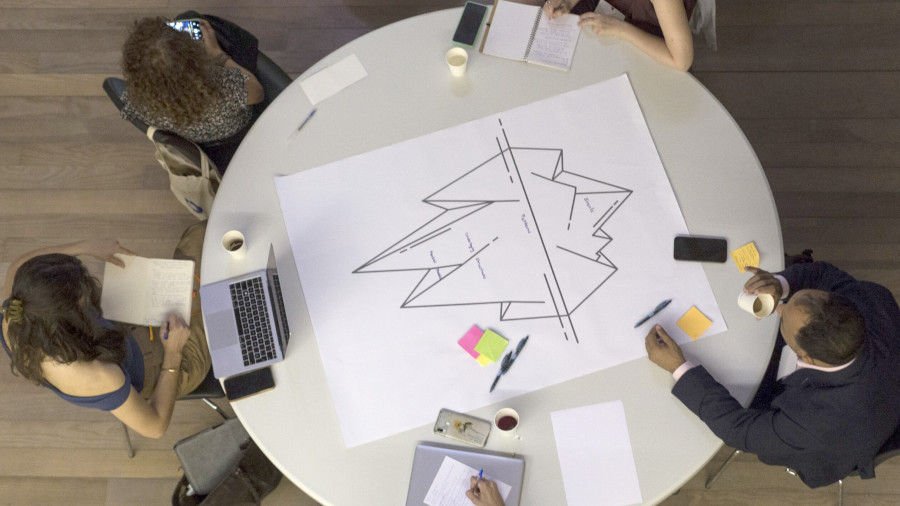The European project JUST2CE, which includes the involvement of the UAB, has analysed factors that could contribute to or hinder a transition towards a circular economy that is socially just, as well as beneficial to the environment.

Difficulties in implementing circular economy practices in complex supply chains such as the fishing industry of Galica; electronic waste trade in Ghana; promotion of regenerative farming practices in South Africa and civil society initiatives to decouple the economy of the Italian city of Taranto, dedicated to steel manufacturing. These are some of the case studies analysed by 14 universities, research centres and non-governmental organisations from nine countries in the European project JUST2CE, funded by the European H2020 programme and recently selected by the European Union as one of this programme's success stories.
The project is led by UAB-associated researcher Mario Pansera, who coordinates it with the University of Vigo, where he is the director of the Post-Growth Innovation Lab. Pansera analysed the factors that could contribute to or hinder an economic transformation which, in addition to benefiting the environment, could also be socially just.
The study combined ten case studies from Europe and Africa with the development of macroeconomic models and "denies that a circular economy could provide solutions that work for everyone", Pansera higlights. In fact, one of the conclusions reached thanks to this project is that the development of a circular economy in what is known as the "Global North" could generate prejudice in countries of the "Global South". A just transition towards a circular economy also includes developing macroeconomic models that would allow discovering the effects of certain measures on the value chain of other countries, as a tools for understanding how global supply chains work.
Working on this project alongside the University of Vigo and the Universitat Autònoma de Barcelona were the universities of Sheffield, Naples Federico II, Leeds, Coimbra, Cape Town and the Mekelle University of Ethiopia. Also involved were the Waste Agency of Catalonia, the Scientific and Industrial Research and Development Centre of Zimbabwe and the organisations Kumasi Hive and African Circular Economy Network.
E-book and documentary
The results of the project have been published in the e-book Economia circular per a la transformació social: múltiples camins per assolir la circularitat, which aims to offer a broad overview of the problems, critical aspects and barriers that characterise the current transition to a fair circular economy. Among the conclusions, the book highlights that the current dominant circular economy model does not allow combining these social and environmental objectives, and focuses on the limitations of a reductionist vision of this paradigm, excessively centred on waste management and recycling. The researchers conclude that this is a far broader concept, involving the entire socio-ecological system of a country, from production to consumption, and therefore tranformative policies must take into account specific regional factors so as to provide support to local communities.
The project also included the study of specific initiatives and problems found in different countries in Europe and Africa. Four of these case studies are reflected in the documentary JUST2CE: Four Stories of Circular Economy, with examples of circular economy initiatives such as the ones carried out in the Italian city of Taranto, and the recovery of rural economies such as the MinGa cooperative in the Portuguese town of Montemor-O-Nueva. The film also addresses the problem of electronic waste, as seen in the market of Kumasi in Ghana, and examines the effects of climate change on agriculture by delving into the history of Lowerland Farm in South Africa.






